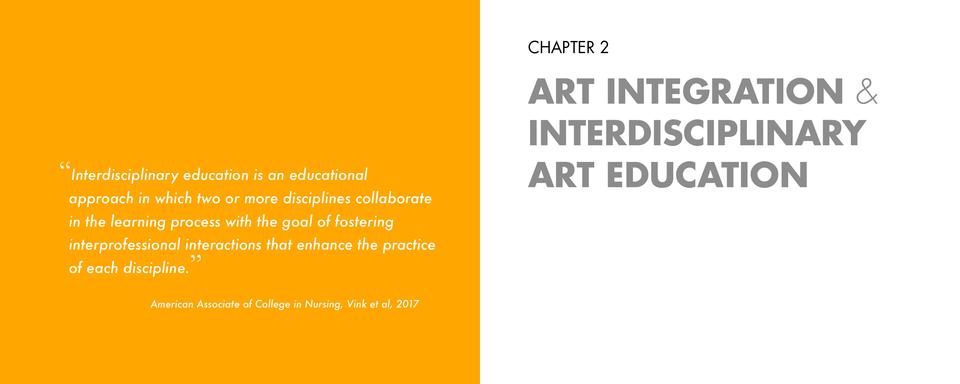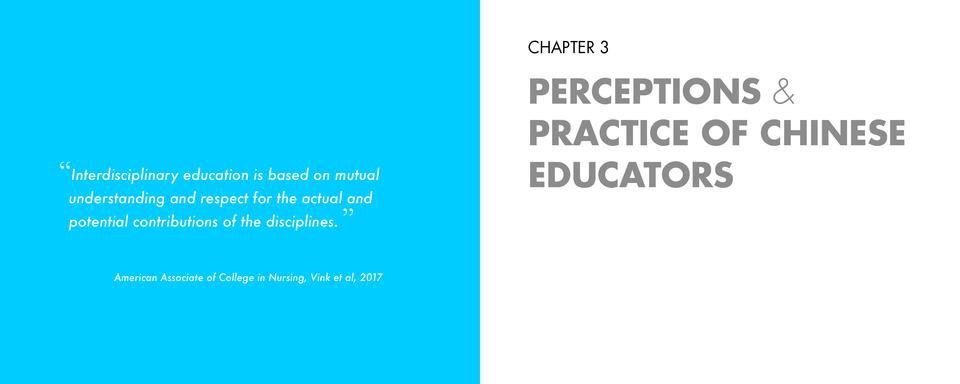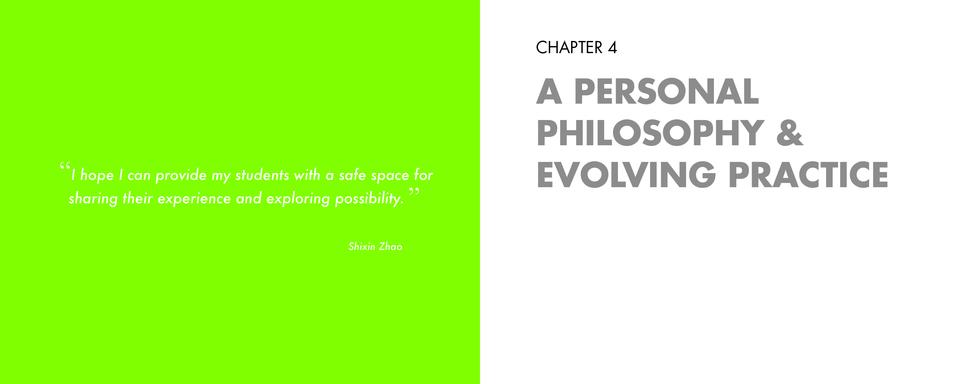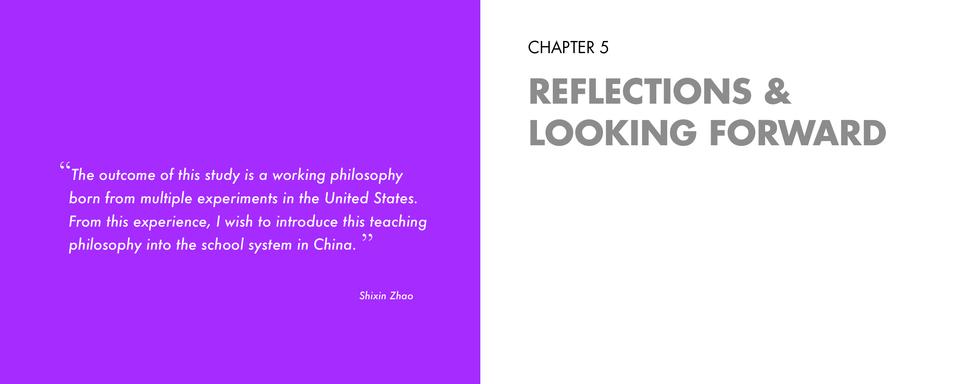Shixin Zhao
THE IMPORTANCE OF INTERDISCIPLINARY ART TEACHING: Reflections on Chinese K-12 Art Education
Central to this thesis investigation is the premise that interdisciplinary art is important for children and youth, especially in the context of Chinese art education. Designed to investigate a movement in art education beyond traditional boundaries, this investigation manifests in four stages of research and concludes with a teaching philosophy for the Chinese school system.
First, the author explores the current state of traditional art classes in China, along with the issues and challenges faced by current art educators. Second, with the objective of creating a positive model built on clear conceptual and practical tools, art integration and interdisciplinary art education within US education are examined in a literature review. Third, She surveys educators from K-12 in Dalian, China. In this survey, data is collected about traditional art classes in China, the perception and essential components of interdisciplinary art teaching, and the strengths and shortcomings of the Chinese education system. Fourth, in order to gain the competency required, the author explores her own personal teaching practice of designing an integrated and interdisciplinary curriculum, and artistic experiments in the two contexts in the United States. This thesis concludes with the creation of a working philosophy born from multiple experiments with a range of students in various spaces and artistic practice in the United States.
Image
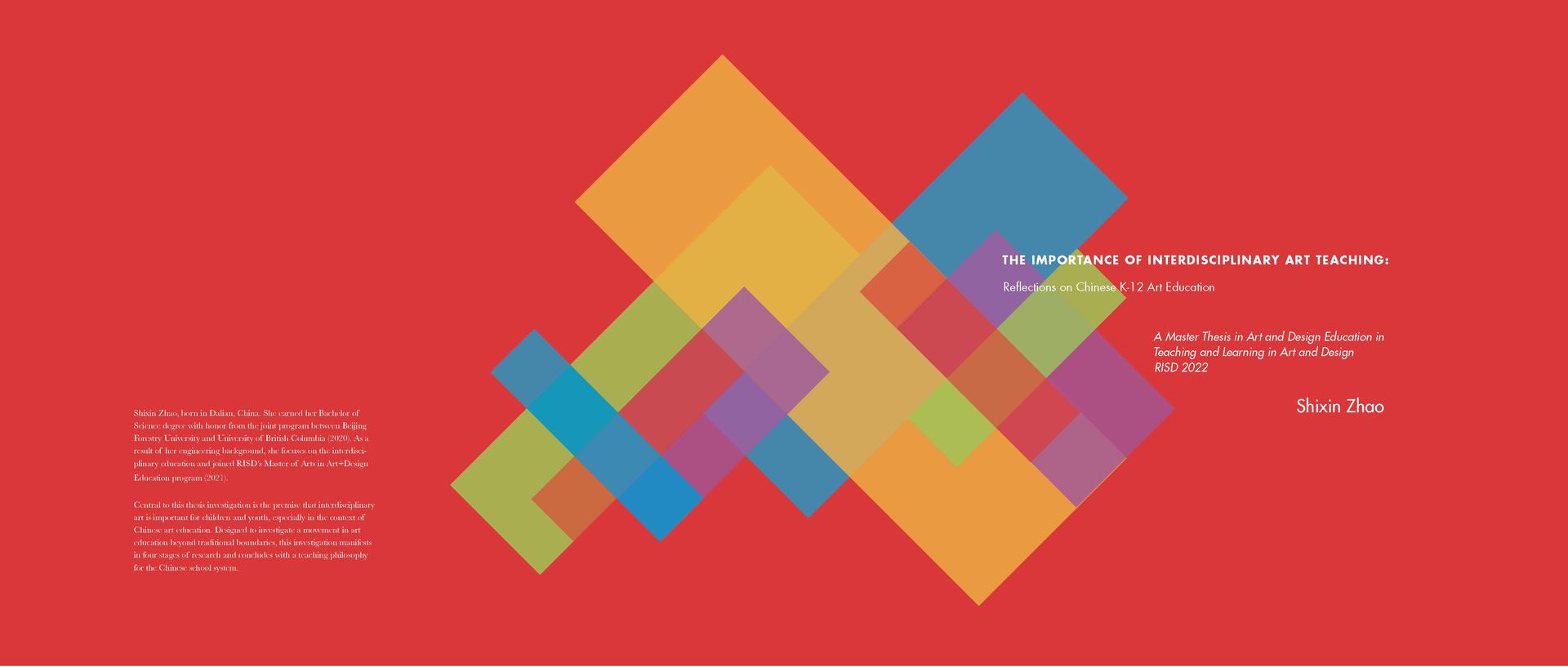
The Cover of Thesis
Brief Intro of Thesis
Central to this thesis investigation is the premise that interdisciplinary art is important for children and youth, especially in the context of Chinese art education. Designed to investigate a movement in art education beyond traditional boundaries, this investigation manifests in four stages of research and concludes with a teaching philosophy for the Chinese school system.
Image
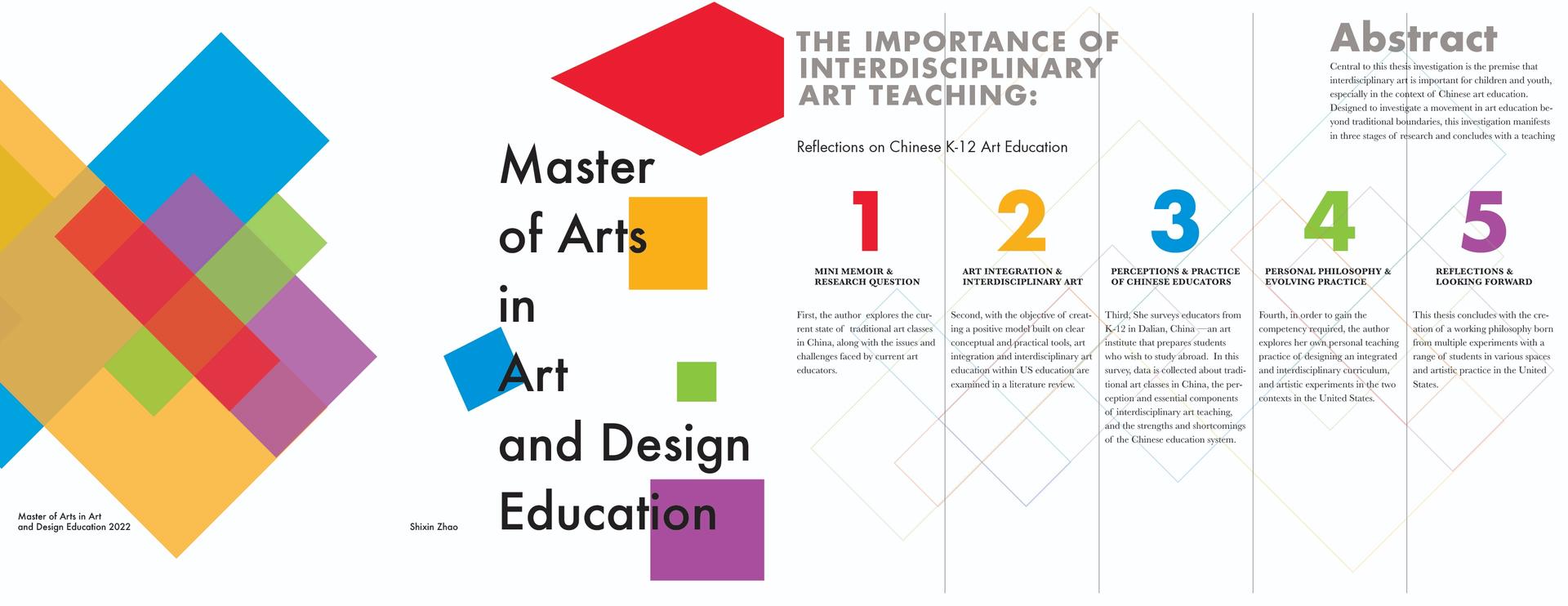
The Brochure of Thesis
Personal Website
Shixin Zhao, born in Dalian, China. She earned her Bachelor of Science degree with honor from the joint program between Beijing Forestry University and University of British Columbia (2020). As a result of her engineering background, she focuses on interdisciplinary education and joined RISD’s Master of Arts in Art+Design Education program (2021).
Table of Contents
Central to this thesis investigation is the premise that interdisciplinary art is important for children and youth, especially in the context of Chinese art education. Designed to investigate a movement in art education beyond traditional boundaries, this investigation manifests in three stages of research and concludes with a teaching philosophy for the Chinese school system.
First, the author explores the current state of traditional art classes in China, along with the issues and challenges faced by current art educators. Second, with the objective of creating a positive model built on clear conceptual and practical tools, art integration and interdisciplinary art education within US education are examined in a literature review. Third, She surveys educators from K-12 in Dalian, China —an art institute that prepares students who wish to study abroad. In this survey, data is collected about traditional art classes in China, the perception and essential components of interdisciplinary art teaching, and the strengths and shortcomings of the Chinese education system. Fourth, in order to gain the competency required, the author explores her own personal teaching practice of designing an integrated and interdisciplinary curriculum, and artistic experiments in the two contexts in the United States. This thesis concludes with the creation of a working philosophy born from multiple experiments with a range of students in various spaces and artistic practice in the United States.
Image

Chapter 1 Mini Memoir & Research Question
- Architecture
- Ceramics
- Design Engineering
- Digital + Media
- Furniture Design
- Global Arts and Cultures
- Glass
- Graphic Design
- Industrial Design
- Interior Architecture
- Jewelry + Metalsmithing
- Landscape Architecture
- Nature-Culture-Sustainability Studies
- Painting
- Photography
- Printmaking
- Sculpture
- TLAD
- Textiles
